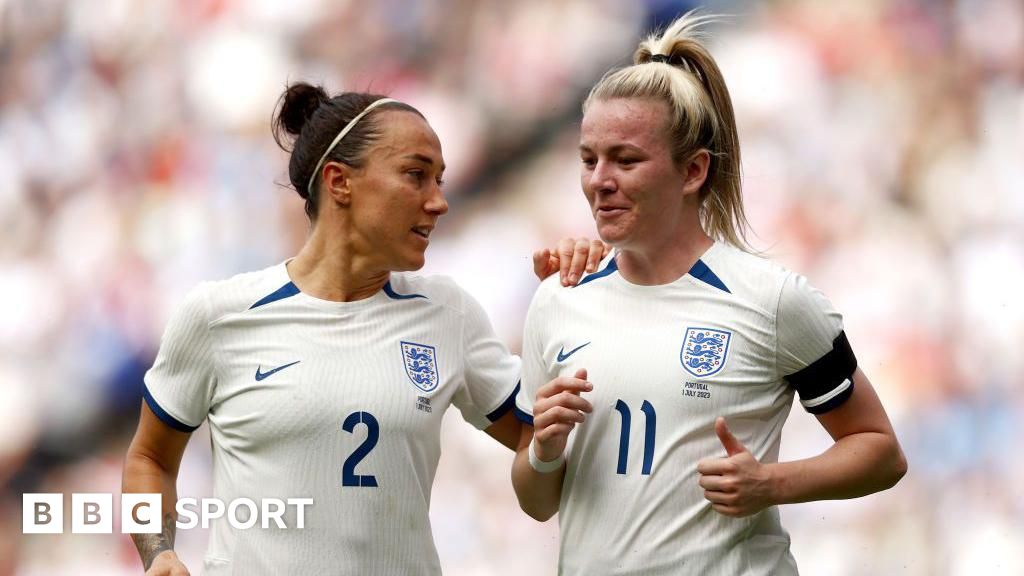ARTICLE AD BOX
With over 30 million padel players worldwide, the sport is booming and has never been more popular.
David Beckham, Serena Williams and even French President Emmanuel Macron count themselves as fans of the racquet sport.
The growth is even more remarkable considering it was only invented in 1969 by a husband and wife duo on holiday as a way to avoid boredom.
Hunter Charlton, from the Sporting Witness podcast, spoke to one of the pair, Viviana Corcuera, about the birth, growth and evolution of padel.
In 1969, while enjoying their new holiday home in the fashionable Las Brisas suburb of Mexican seaport city Acapulco, model Viviana and husband Enrique created a game that was to become a global sensation.
To pass the time, the wealthy couple began throwing a ball at a wall and Viviana quickly fell in love with the rudimentary version of the game.
She issued an ultimatum to her husband: "If you don't make a court in Acapulco, I'm going back home to Argentina. No padel court, no Viviana."
Enrique agreed and in the backdrop of the crashing waves of the Pacific Ocean, a group of builders began the construction.
A court measuring 20 metres long by 10 metres wide was built out of cement, making it easy to maintain.
Enrique insisted on a crucial design element linked to an unpleasant memory he had of attending boarding school in England. Enrique said: "The school had a ball court, the balls fell outside of the court.
"I suffered so much from the cold and from going to look for balls all the time that I want a closed court."
He asked the bricklayer and the engineer to close the sides completely with wire fences.
Padel is a racquet sport that uses the same scoring conventions as lawn tennis but is played on courts around a third smaller.
The game is mainly played in the doubles format, with players using solid racquets with no strings. The courts are enclosed and, like in squash, players can bounce the ball off the walls.
Padel balls are smaller than those used in tennis and players serve underarm.
"It's a game of knowing how to place the ball gently. The beauty of the game was that players needed little time to start rallying, but mastering it required the right combination of technique, strategy, athleticism and dedication," Viviana explains.
In the 1960s and '70s, Acapulco was a major holiday destination for Hollywood's glitterati and that is where padel's popularity with celebrities began.
American diplomat Henry Kissinger frequently picked up a racquet, as did many of the other high-profile visitors.
The game crossed the Atlantic in 1974 when Prince Alfonso of Spain built two padel courts in Marbella. He had developed a passion for the game after holidaying with the Corcueras.
The following year, padel arrived in Argentina, where it exploded in popularity. But there was one problem: there was no rule book.
Enrique used this to his advantage.
"Enrique wasn't getting any younger, so he changed the rules to win matches. He was the inventor, so we couldn't complain," Viviana says.
Throughout the 1980s and '90s, the sport continued to grow at pace. The introduction of transparent walls meant that spectators, commentators and cameras could view the whole courts.
The world's first international tournament - the Corcuera Cup - took place in Mexico in 1991, followed by the first World Championship in Spain the next year.
Players now include a number of Premier League footballers, with new courts in Manchester visited by Manchester United stars who have been known to record their visits on social media.
The Lawn Tennis Association (LTA) describes padel as "the fastest-growing sport in the world", and as "an innovative form of tennis".
At the end of 2023, the LTA said there were 350 courts available in Great Britain, with the number rapidly rising, while Sport England said over 50,000 people played padel at least once in England in the year to November 2023.
Former Paris St-Germain and Newcastle forward Hatem Ben Arfa has taken his padel passion one step further than the Manchester United enthusiasts.
He reportedly ranked 997th in France earlier this year and is said to have competed in 70 tournaments during 2023.
Viviana believes padel took off so quickly because it can be enjoyed by the entire family - from grandparents to young children.
"It brings the family together. We can all play. The grandfather can play with the grandson, the father with the son," she said.
"I'm very proud to have been part of the invention of this game with my husband making the first set of rules going from a wire fence to glass. My husband died many years ago in 1999; what I would have given for him to be able to see how far the sport has come."

 2 months ago
13
2 months ago
13








 English (US)
English (US)